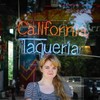Australia may be the only country where it's customary to celebrate the national holiday by sitting in a lukewarm paddling pool, listening to the Hottest 100—but most places around the world have some sort of patriotic national day. A notable exception: the United Kingdom. Why? Well, most national days celebrate decolonisation or independence of some kind. Often from British rule.January 26 is Australia Day, the national holiday that marks the founding of Sydney. In stark contrast to Independence Day in the United States, or Canada Day in Canada, or Bastille Day in France, Australia Day does not mark a revolution or new beginning. It does not mark the date that Australia federated under its own constitution. It does not even mark the beginning of British settlement in Australia. It marks the beginning of British settlement in New South Wales, which is a totally different thing.This puts Australia in a strange position compared to most of the world. Vanuatu, Cambodia, Uzbekistan, Ukraine, Tunisia, Syria, South Korea, South Africa, Slovenia, Montenegro, Slovakia, Singapore, Zambia, Barbados, Vietnam,Senegal, Rwanda, Paraguay, Peru, Papua New Guinea, Pakistan, Norway, New Zealand, Morocco, Swaziland, Belarus, Sudan, Sri Lanka, Mozambique, Brazil, Mexico, Malaysia, Jamaica, Italy, Iraq, Indonesia, Sierra Leone,Haiti, Guinea, Guatemala, Botswana, Greece, Gabon, Finland, East Timor, Croatia, Trinidad and Tobago, Chad, Belize, and Bangladesh are just some of the countries whose national holidays celebrate independence from colonial rule, or the formation of a republic, or the signing of a significant treaty that changed the national outlook, or the end of a military occupation. The few counterexamples are usually those countries who colonised or invaded other territories, rather than being invaded themselves.So why January 26? Australia, home to the oldest civilisation in the world, was invaded in 1787. It did not achieve independence until over 100 years later. We know that for many Indigenous Australians, January 26 is a national day of mourning—and Invasion Day protests have been routinely held since the late 1980s. Still, no prime minister has ever spoken in favour of changing the date.This year, it seems like we're finally coming to a turning point. The city of Fremantle has symbolically changed the date of its fireworks. Invasion Day protests in capital cities are expected to draw record numbers tomorrow. Even lamb ads are celebrating a (hackneyed, slightly uncomfortable version of) multiculturalism now. For mainstream Australians, the green and gold paddling pool is looking less and less appealing. There's hope. Change is coming, right?But then there's the larger, sadder realisation. For Indigenous Australians, experiences of racism, socio-economic disadvantage, youth suicide, and disproportionately high rates of incarceration and deaths in police custody are a daily reality. While many countries take their national holiday to celebrate successful decolonisation, for Australia to do the same may be a little premature.Follow Kat on Twitter
Advertisement
